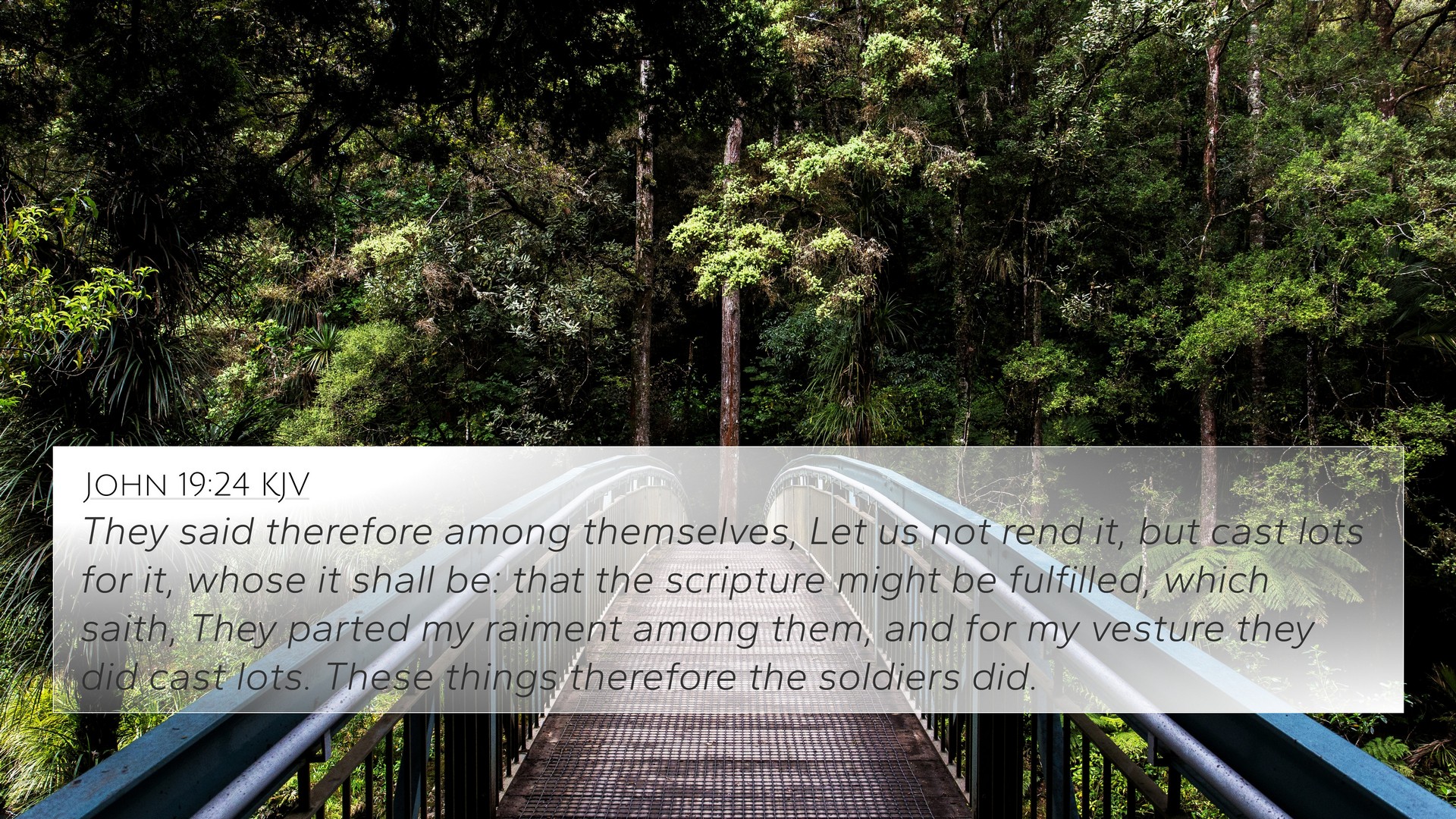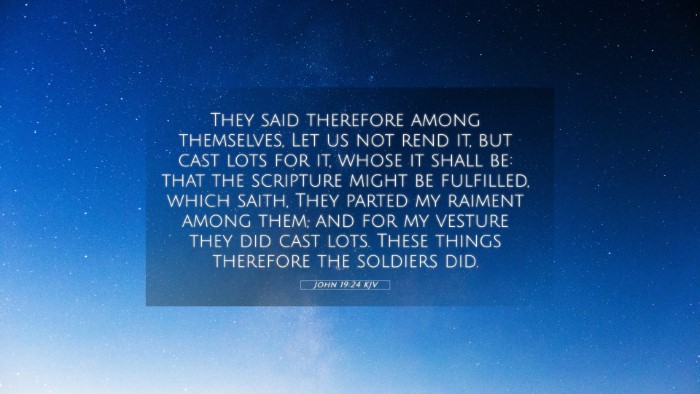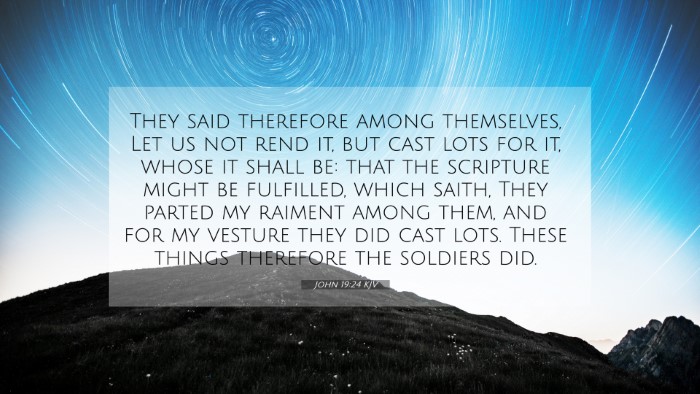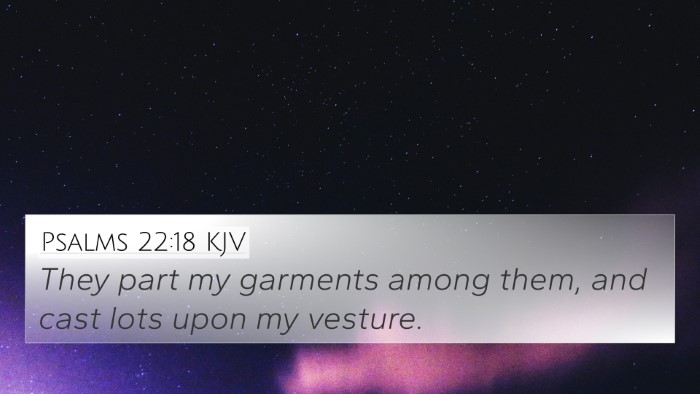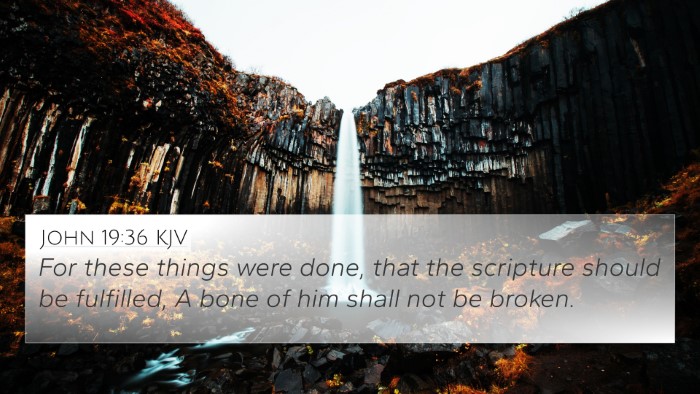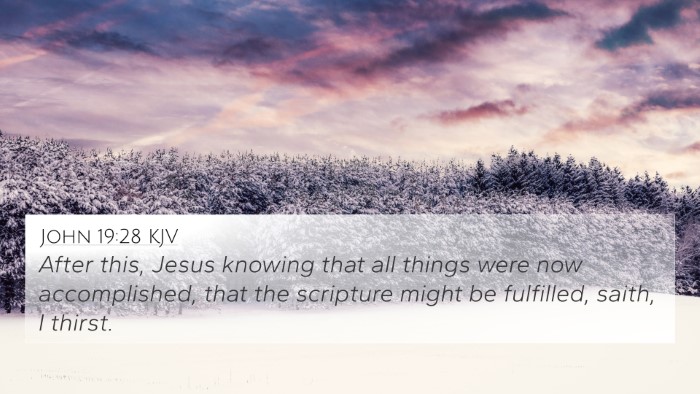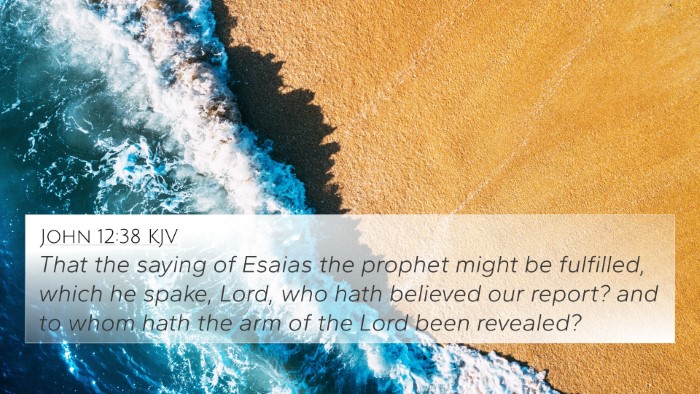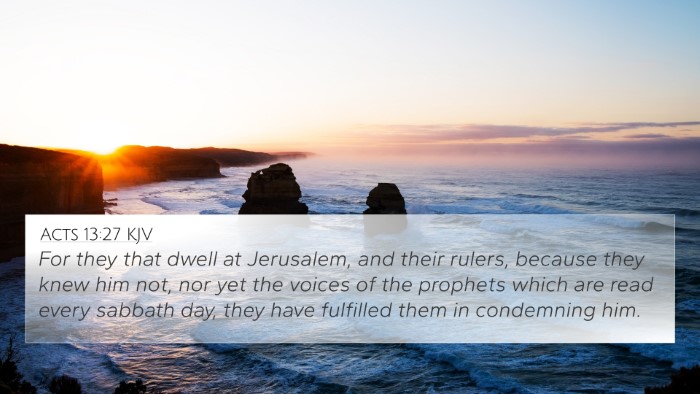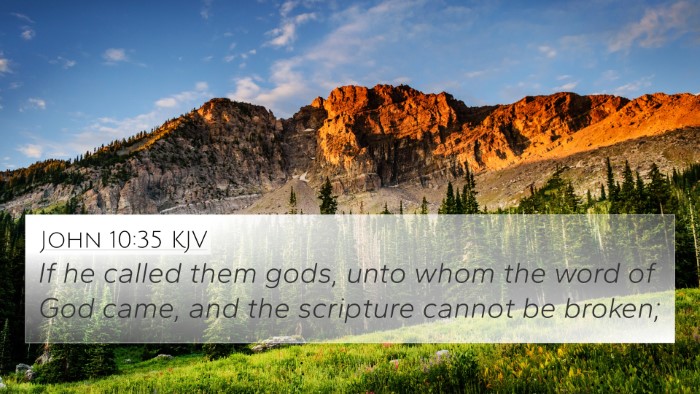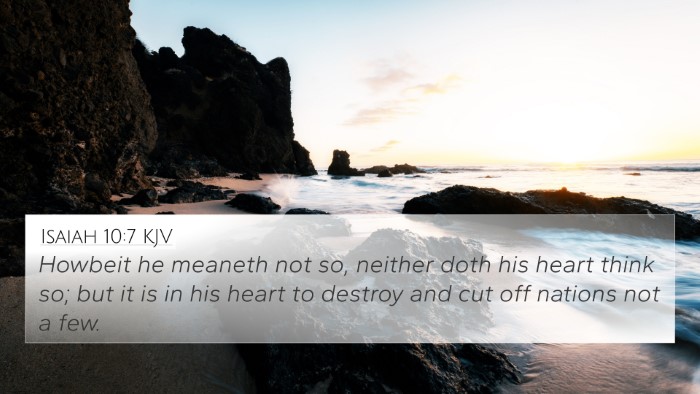Understanding John 19:24
Verse Reference: John 19:24 - "They said therefore among themselves, Let us not rend it, but cast lots for it, whose it shall be: that the scripture might be fulfilled, which saith, They parted my raiment among them, and for my vesture they did cast lots. These things therefore the soldiers did."
Verse Meaning and Commentary
This passage from the Gospel of John reveals a significant moment during the crucifixion of Jesus, emphasizing the fulfillment of Old Testament prophecy as well as the actions of the soldiers overseeing his execution. Below, we present insights from various public domain commentaries to provide a deeper understanding of this verse.
Matthew Henry's Commentary Insights
- Fulfillment of Prophecy: Matthew Henry notes that the events described are a direct fulfillment of Psalm 22:18, where it is foretold that the Messiah's clothing would be divided among those present at His crucifixion.
- Human Indifference: Henry reflects on the soldiers' actions, highlighting their callousness and indifference to the suffering of Jesus, showcasing the cruel nature of mankind at that tragic hour.
- The Sovereignty of God: Henry emphasizes that this act of casting lots was not merely an act of chance but was under the divine sovereignty of God, preordained and prophesied long before.
Albert Barnes' Commentary Insights
- Cultural Context: Barnes elaborates on the practice of casting lots, a common method used in ancient times to make decisions. This illustrates the detachment of those executing judgment against Jesus.
- Connection to Scriptures: He draws attention to the importance of understanding these actions through the lens of Scripture, reinforcing the significance of biblical prophecy in the narrative of Jesus' life and death.
- The Act of Dividing Clothing: Barnes suggests that by parting Jesus' clothes, the soldiers betrayed a lack of reverence towards the crucified Christ, treating Him merely as a criminal rather than recognizing His significance.
Adam Clarke's Commentary Insights
- Theological Reflections: Clarke delves into the theological implications of casting lots for Jesus' garments, illustrating the fulfillment of God's promise and plan through what appeared to be random actions.
- Connection with Psalm 22: He reiterates the connection to Psalm 22, emphasizing how this aspect of the crucifixion was a clear sign of Jesus being the prophesied Messiah.
- Symbolism of the Garment: Clarke also reflects on the symbolic nature of the garment itself, viewing it as a representation of Jesus' earthly ministry and the disdain shown towards it by the soldiers.
Cross-References for John 19:24
Here are key Bible verses that are interrelated, enhancing the understanding of John 19:24:
- Psalm 22:18 - "They divide my garments among them, and for my clothing they cast lots."
- Matthew 27:35 - "And they crucified him, and parted his garments, casting lots: that it might be fulfilled which was spoken by the prophet."
- Mark 15:24 - "And when they had crucified him, they divided his garments, casting lots upon them, what every man should take."
- Luke 23:34 - "Then said Jesus, Father, forgive them; for they know not what they do. And they parted his raiment, and cast lots."
- Isaiah 53:3-5 - "He is despised and rejected of men; a man of sorrows, and acquainted with grief... He was wounded for our transgressions."
- John 1:11 - "He came unto his own, and his own received him not."
- Revelation 19:13 - "And he was clothed with a vesture dipped in blood: and his name is called The Word of God."
Inter-Biblical Dialogue: Thematic Connections
John 19:24 opens up a rich dialogue between various scriptures, illustrating various themes such as suffering, prophecy, and rejection. By examining these connections, one can deepen their understanding of biblical narratives and God's overarching plan for redemption.
How to Explore Cross-Referencing
For those seeking to dive deeper into cross-referencing Bible verses, consider utilizing the following tools and methods:
- Bible Concordance: A valuable resource for locating scripture based on keywords.
- Bible Cross-Reference Guide: Provides lists of verses that complement or relate to one another.
- Cross-Reference Bible Study: Methods for connecting verses thematically or contextually.
Conclusion
John 19:24 serves as a powerful testament to the prophetic nature of Scripture and the events surrounding the crucifixion of Jesus Christ. By engaging with various commentaries and cross-referencing connected passages, believers can gain a richer, more nuanced understanding of this pivotal moment in Christian faith.
Further Study and Reflection
As you continue in your studies, consider asking questions such as:
- What verses are related to the themes of sacrifice and fulfillment?
-
- How do the prophecies of the Old Testament influence our understanding of the New Testament?
- What methods can be employed for a more effective Bible study guided by cross-references?
